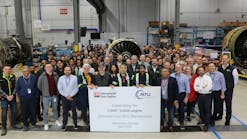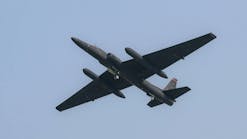Aurora - Flight attendants can do everything from serving beverages to evacuating planes, but some are now adding hammer fist strikes and wrist locks to their list of job skills.
Those moves are some of the techniques taught in self-defense training classes for airline crew members, funded by the U.S. Transportation Security Administration.
In a gym at the Community College of Aurora's Lowry campus on Thursday, 15 flight attendants and pilots took turns assaulting dummies called "Bobs." They struck, slapped and kneed the rubber torsos, while shouting "Stop! Get back! Help!"
"The louder you are, the more chance someone's going to help you, because planes are loud," head trainer and Aurora police officer Lee Condreay told them, while exhorting some to be louder.
Through its federal air marshals program, the agency has been training flight attendants and pilots around the country in self-defense techniques since December 2004. The program is run in partnership with community colleges.
It costs about $300 a person to offer the class, according to Carrie Harmon, TSA spokeswoman in Denver.
In the Denver area, TSA partners with the Community College of Aurora and works with TSA-trained instructors, including police officers.
"People come in with various levels of ability," said Michael Carter, Community College of Aurora director of academies, public service, police-fire-criminal justice, who coordinates the classes. "By the end of the day we make them comfortable" practicing the techniques.
Self-defense on an airplane involves special challenges.
"They're in a confined space. They're not able to call for help," Condreay said. That makes it difficult to get away from an assailant and limits the number of things that can be used as shields or weapons.
"There have been incidents on flights where passengers have been a little aggressive," said flight attendant Dana Wicklund, who lives in Denver. "It would have been nice to know how to defend myself and tell them to stand back, rather than let the problem escalate."
Aside from defending themselves, flight attendants must also be trained to defend the cockpit. Condreay urged the flight attendants and pilots to consider which items on a plane could be used against them as makeshift weapons.
"Somebody might take a bottle or a CD case … or a soda can, and snap it in half," Condreay said.
Flight attendants may be able to shield themselves with beverage carts or laptops, he said.
"Say that somebody has plans to take over a plane. You don't know what they're going to use. You have to be prepared for everything," Condreay said.
In July, TSA shortened the training from a three-day program to one day of hands-on training with participants watching a DVD and reading a manual before the class. Participation is voluntary and crew members can repeat the classes for review of the skills as often as they want.
"The more they come back, the more confident they get," Carter said.
The TSA is required to offer self-defense training under a reauthorization bill signed into law in 2003.
Though the TSA training is free, it is not required, and flight attendants must find their own time and their own way there.
"We have lobbied since the initial days after Sept. 11. It's critical the flight attendants have this training," said Sara Nelson Dela Cruz, a spokeswoman for the Association of Flight Attendants at United. "Flight attendants are the last line of defense."
Staff writer Kelly Yamanouchi can be reached at 303-954-1488 or .





